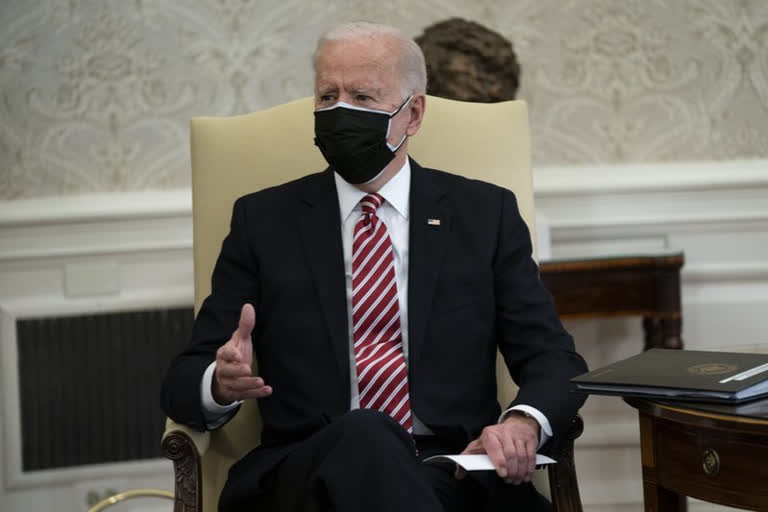Washington:Joe Biden will use his first big presidential moment on the global stage at Friday’s Group of Seven meetings of world leaders to announce that the U.S. will soon begin releasing $4 billion for an international effort to bolster the purchase and distribution of coronavirus vaccine to poor nations, White House officials said.
Former President Donald Trump declined to participate in the COVAX initiative because of its ties to WHO, the Geneva-based agency that Trump accused of covering up China’s missteps in handling the virus at the start of the public health crisis. Trump pulled the U.S. out of the WHO, but Biden moved quickly after his inauguration last month to rejoin and confirmed that the U.S. would contribute to COVAX.
The $4 billion in U.S. funding was approved by Congress in December and will be distributed through 2022.
The U.S. is committed to working through COVAX to ensure “equitable distribution of vaccines and funding globally,” White House press secretary Jen Psaki told reporters on Thursday.
Read:|Us Lets In Asylum Seekers Stuck In Mexico
It remains to be seen how G-7 allies will take Biden’s calls for greater international cooperation on vaccine distribution given that the U.S. refused to take part in the initiative under Trump and that there are growing calls for the Biden administration to distribute some U.S.-manufactured vaccine supplies overseas.
French President Emmanuel Macron, in an interview Thursday with the Financial Times, called on the U.S. and European nations to allocate up to 5% of current vaccine supplies to developing countries — the kind of vaccine diplomacy that China and Russia have begun deploying.
And earlier this week, U.N. Secretary-General Antonio Guterres sharply criticized the “ wildly uneven and unfair” distribution of COVID-19 vaccines, noting 10 countries have administered 75% of all vaccinations.
Last month, Canadian Prime Minister Justin Trudeau also raised with Biden the prospect of Canada getting the vaccine from pharmaceutical giant Pfizer’s facility in Kalamazoo, Michigan, according to a senior Canadian government official, who spoke to The Associated Press on condition of anonymity to describe a private conversation.
